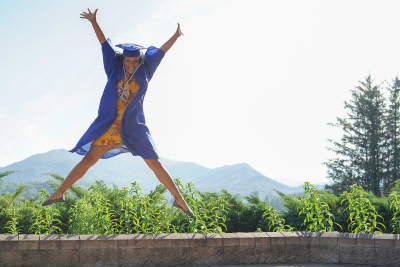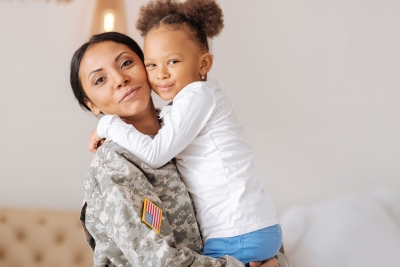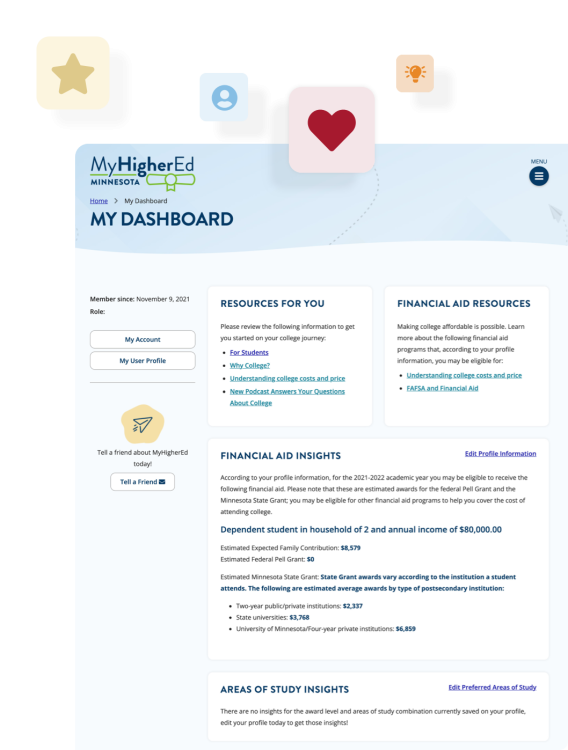Many students pay for part of their college education by working during college or by serving their community or country before or after they attend college. Students can gain valuable experiences through these diverse programs that reward work and service with financial aid for college.
Work Study
Both the federal and state work study programs are open to undergraduates, graduate, and vocational students. Work study provides part time on- or off-campus jobs to help students pay the cost of their higher education.
Common work-study jobs include tutoring other students, or working in the college cafeteria, technology center, fitness center, bookstore or library. Some jobs will be based on your skills or academic program.
Some work study positions can be structured as internships that allow students to learn as they earn by working in jobs directly related to their field of study. Internships may take place in both the public and private sectors.
If you are eligible, your financial aid office will consider your work-study award amount, schedule, job skills, and academic program to determine how many hours you can work.
Your wage depends on the job and your qualifications, but most students average about 15 hours a week and may earn $3,000 or more per year. Work study is not considered income on the Free Application for Federal Student Aid (FAFSA). If you don't qualify for work study, check with the school's financial aid administrator about other on-campus jobs, or consider off-campus jobs.
Work Study Eligibility
Federal Work-Study Eligibility
To be eligible for Federal Work-Study, the student must:
- Be a U.S. citizen or eligible non-citizen;
- Be enrolled in a program leading to a degree, certificate, or diploma;
- Be registered with the Selective Service if male;
- Not be in default on a student loan;
- No previous convictions for possession or sale of illegal drugs while receiving federal financial aid; and
- Be making satisfactory academic progress.
Minnesota Work-Study Eligibility
To be eligible for Minnesota Work-Study, the student must:
- Be a Minnesota resident and attend a participating Minnesota school;
- Be enrolled for at least six credit hours per term in a program leading to a degree, certificate, or diploma;
- Be making satisfactory academic progress; and
- Undocumented students under DACA with work authorization are eligible for funds.
Application
The financial aid office at the school you attend or plan to attend will use the results from your FAFSA or Dream Act Application (for undocumented students) to determine your eligibility for work study.
Paying for College
This guide explains the several financial aid options available to pay for college and how to make them work for you.
Complete the FAFSA
The Free Application for Federal Student Aid is your first step into accessing student financial aid.
Community Service
These are programs that employ people in unique community service roles throughout the country and world, and provide educational assistance to participants once the term of service is complete
AmeriCorps
AmeriCorps is a cooperative effort between the federal government, the state, and local agencies to improve community service around the country.
Jobs often are available in projects addressing preschool education, dropout prevention, literacy, low-income housing, assisted living for the elderly and people with disabilities, violence prevention, conservation, and neighborhood recycling. You may be eligible to receive a stipend and an education award through the program to help pay for your education.
To be eligible for AmeriCorps positions, you must:
- Be 17 years of age or older;
- Have a high school diploma or a GED (or are completing a GED), and
- Be a U.S. citizen or an eligible non-citizen.
Form more information about AmeriCorps, visit their FAQ page. For information on Minnesota opportunities, call ServeMinnesota at (612) 333-7740, or visit www.serveminnesota.org.
Federal John R. Justice Student Loan Repayment Program
The John R. Justice Student Loan Repayment Program is a federal program administered by the Minnesota Office of Higher Education. The program intends to encourage lawyers to become and remain full-time public defenders and public criminal prosecutors.
Selected recipients will receive educational loan repayments in exchange for agreeing to serve full-time as a public prosecutor or public defender in Minnesota for an initial three additional years. After completing an initial three year service commitment attorneys are eligible to reapply and may receive additional educational loan repayments in exchange for continuing to serve.
Who is Eligible to Apply?
Applicants must have worked full-time (Full-time is defined as at least 30 hours a week) as one of the following for at least three years, and will be working full time as one of the following for the duration of the initial three year service commitment:
- Employee of the State of Minnesota or unit of local government (including tribal government) who prosecutes criminal or juvenile delinquency cases at the state or unit of local government level, including supervision, education, or training of other persons prosecuting such cases. Prosecutors who are employees of the federal government are not eligible; or
- Employee of the state of Minnesota or unit of local government (including tribal government) who provides legal representation to indigent persons in criminal or juvenile delinquency cases including supervision, education, or training of other persons providing such representation; or
- Employee of a nonprofit organization operating under a contract with Minnesota or unit of local government (including tribal government) who devotes substantially all of the employee's full-time employment to providing legal representation to indigent persons in criminal or juvenile cases including supervision, education, or training of other persons providing such representation; or
- Lawyer employed in Minnesota as a full-time federal defender attorney in a defender organization pursuant to Subsection (g) of section 3006A of Title 18, United States Code, that provides legal representation to indigent persons in criminal or juvenile delinquency cases.
In addition, applicants must:
- Have an outstanding balance on an eligible educational loan;
- Not be in default on repayment of any student loans; and
- Have worked full-time for at least three years as a public defender or a public criminal prosecutor.
Application Process
Applicants submit an application to the Office of Higher Education. The application is available every three years. The 2019 application closed on January 15, 2020. If federal funds remain available for this program, the next application will be available in fall 2022.
Selection Process
Currently, the program selects approximately 16 public prosecutors and 16 public defenders in Minnesota each year for awards. To the extent possible, awards are distributed to applicants with the least ability to repay their student loans within each of the ten judicial districts statewide and the appellate office for public defenders and within each of the ten judicial districts statewide for public criminal prosecutors. Priority consideration is given to previous recipients as well as applicants who are fluent in Spanish, Somali, Hmong or American Sign Language.
How Much Money Can You Get?
The annual loan repayment award varies each year based on the amount of federal funds awarded to the State of Minnesota by the Bureau of Justice Assistance. Based on the federal funds available for Federal Fiscal Year 2019, selected recipients are expected to receive an annual loan repayment award of approximately $1,900.
Teacher Shortage Loan Repayment Program
Teachers providing classroom instruction in a teacher shortage area in Minnesota may be eligible for student loan repayment assistance of $1,000 per year up to a total of $5,000 in repayment awards. The purpose of the program is to encourage teachers to teach in Minnesota in designated shortage areas.
Shortage areas include teacher licensure fields in high demand statewide, geographical regions within the state experiencing teacher shortages, and teacher licensure fields in high demand within regions of the state.
Eligibility
In general, applicants must currently:
- Hold a teaching license issued by the Minnesota Professional Educators Licensure Board (PELSB);
- Be employed by a school district to provide classroom instruction;
- Teach in a designated teacher shortage area; and
- Have outstanding qualified educational loan debt.
Applicants must apply annually with the Office of Higher Education. Applicants who meet the general eligibility requirements will be requested to provide additional documentation to verify the information provided on the application.
Minnesota Agricultural Education Loan Repayment Program
The Minnesota Agricultural Education Loan Repayment Program was established to provide student loan repayment assistance to teachers who provide agricultural education to grades 5 through 12 at a Minnesota school during the current year. Annual awards are up to $3,000 in loan repayment assistance.
To receive an award, applicants must sign a contract agreeing to serve a minimum one-year full-time service obligation in Minnesota. Awardees are limited to receiving the award for up to 5 years.
To qualify for this program, an applicant must:
- Complete an undergraduate or graduate program in agricultural education at a college or university approved by the state of Minnesota to prepare persons for teacher licensure;
- Be employed by a Minnesota school district, charter school, private school, or tribal contract school (eligible to receive aid) to provide agricultural education in any grade from grades 5 through 12; and
- Have outstanding qualified educational loan debt.
A teacher must submit a complete application to the Minnesota Office of Higher Education to be considered for an award. Applicants who meet the general eligibility requirements are notified if they are selected for application review and must provide additional documentation to verify the information on the application.
Minnesota Aviation Degree Loan Repayment Program
The Minnesota Aviation Degree Loan Repayment Program was established to provide student loan repayment assistance to eligible pilots and aircraft technicians who reside in Minnesota. Annual awards are up to $3,000 for aircraft technicians and up to $5,000 for pilots in loan repayment assistance.
An applicant selected to receive an award must sign a contract agreeing to serve a minimum one-year full-time service obligation in Minnesota. Awardees are limited to receiving the award for up to 5 years.
To qualify for this program, an applicant must:
- Earn an associate's or bachelor's degree from a Minnesota institution;
- Be a qualified pilot or aircraft technician;
- Pilot: in the process of obtaining or has obtained an airline transport pilot certificate
- Aircraft Technician: has obtained an aviation mechanic's certificate from the Federal Aviation Administration
- Reside in Minnesota
- Have outstanding qualified educational loan debt that was originally borrowed for educational costs at a Minnesota institution for a professional aviation degree.
The 2021 application is now available for submission until November 30th. Applicants who meet the eligibility requirements will be notified if selected for application review. Those applicants must provide additional documentation to verify the information on the application.
Minnesota Rural Veterinarian Loan Repayment Program
The Minnesota Rural Veterinarian Loan Repayment Program was established to provide student loan repayment assistance to eligible veterinarians serving in designated rural areas in Minnesota. Annual awards are up to $15,000 for a total of up to $75,000 over 5 years.
To qualify for this program, an applicant must:
- Be a current student or graduate of the Doctorate of Veterinary Medicine program at the College of Veterinary Medicine, University of Minnesota;
- Be in the final year of the program and meeting Satisfactory Academic Progress;
- Have graduated within 3 years of the application date;
- Have outstanding qualified educational loan debt borrowed for educational costs related to the undergraduate or graduate education of the veterinarian;
- Agree to serve five years in an eligible position as a licensed veterinarian;
- Service must be in a designated rural area in Minnesota defined as locations outside the counties of Anoka, Carver, Dakota, Hennepin, Ramsey, Scott and Washington, excluding the cities of Duluth, Mankato, Moorhead, Rochester and St. Cloud;
- Service must be full-time (at least 30 hours per week for at least 45 weeks per year); and
- Service must be at least 50% involved with the care of food animals.
Applications are submitted to the Office of Higher Education through a process facilitated by the College of Veterinary Medicine at the University of Minnesota. Preference is given to applicants closest to completing their training, including students and practicing veterinarians.
An applicant selected to receive an award must sign a contract agreeing to serve five years in a designated rural area in Minnesota and at least 50% of the veterinarian's service must involve the care of food animals.
The 2021 application is currently closed.





